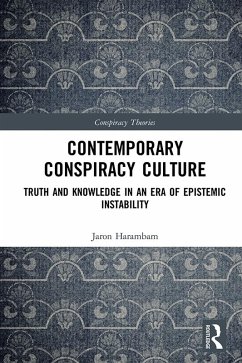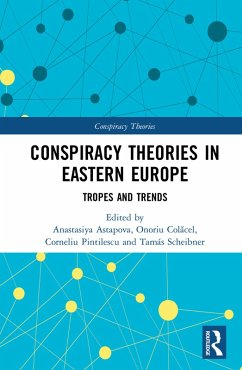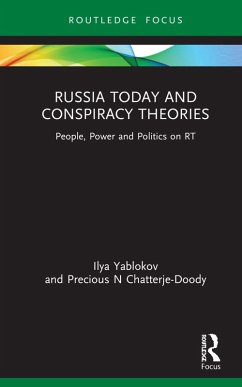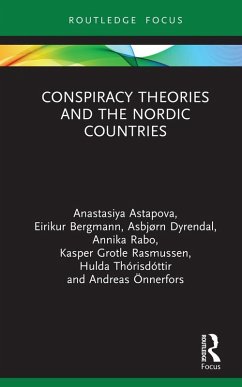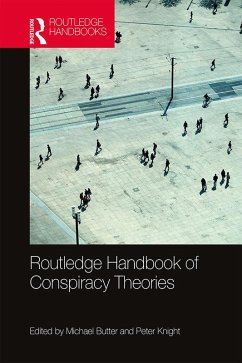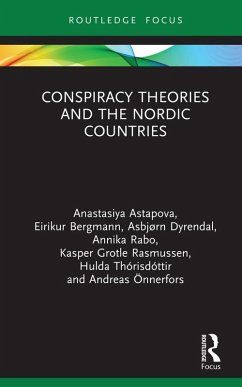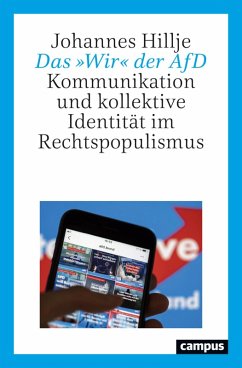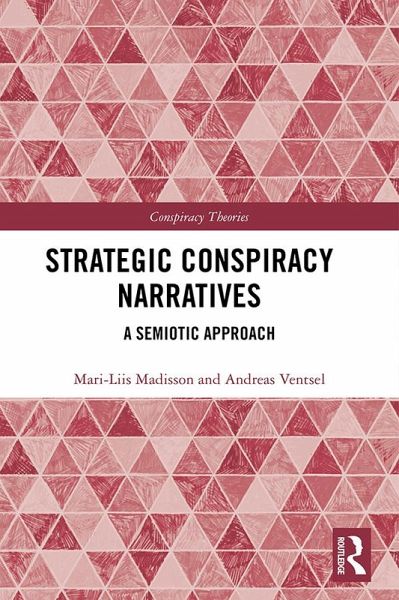
Strategic Conspiracy Narratives (eBook, ePUB)
A Semiotic Approach
Versandkostenfrei!
Sofort per Download lieferbar
41,95 €
inkl. MwSt.
Weitere Ausgaben:

PAYBACK Punkte
21 °P sammeln!
Strategic Conspiracy Narratives proposes an innovative semiotic perspective for analysing how contemporary conspiracy theories are used for shaping interpretation paths and identities of a targeted audience.Conspiracy theories play a significant role in the viral spread of misinformation that has an impact on the formation of public opinion about certain topics. They allow the connecting of different events that have taken place in various times and places and involve several actors that seem incompatible to bystanders. This book focuses on strategic-function conspiracy narratives in the conte...
Strategic Conspiracy Narratives proposes an innovative semiotic perspective for analysing how contemporary conspiracy theories are used for shaping interpretation paths and identities of a targeted audience.
Conspiracy theories play a significant role in the viral spread of misinformation that has an impact on the formation of public opinion about certain topics. They allow the connecting of different events that have taken place in various times and places and involve several actors that seem incompatible to bystanders. This book focuses on strategic-function conspiracy narratives in the context of (social) media and information conflict. It explicates the strategic devices in how conspiracy theories can be used to evoke a hermeneutics of suspicion - a permanent scepticism and questioning of so-called mainstream media channels and dominant public authorities, delegitimisation of political opponents, and the ongoing search for hidden clues and coverups. The success of strategic dissemination of conspiracy narratives depends on the cultural context, specifics of the targeted audience and the semiotic construction of the message. This book proposes an innovative semiotic perspective for analysing contemporary strategic communication. The authors develop a theoretical framework that is based on semiotics of culture, the notions of strategic narrative and transmedia storytelling.
This book is targeted to specialists and graduate students working on social theory, semiotics, journalism, strategic communication, social media and contemporary social problems in general.
Conspiracy theories play a significant role in the viral spread of misinformation that has an impact on the formation of public opinion about certain topics. They allow the connecting of different events that have taken place in various times and places and involve several actors that seem incompatible to bystanders. This book focuses on strategic-function conspiracy narratives in the context of (social) media and information conflict. It explicates the strategic devices in how conspiracy theories can be used to evoke a hermeneutics of suspicion - a permanent scepticism and questioning of so-called mainstream media channels and dominant public authorities, delegitimisation of political opponents, and the ongoing search for hidden clues and coverups. The success of strategic dissemination of conspiracy narratives depends on the cultural context, specifics of the targeted audience and the semiotic construction of the message. This book proposes an innovative semiotic perspective for analysing contemporary strategic communication. The authors develop a theoretical framework that is based on semiotics of culture, the notions of strategic narrative and transmedia storytelling.
This book is targeted to specialists and graduate students working on social theory, semiotics, journalism, strategic communication, social media and contemporary social problems in general.
Dieser Download kann aus rechtlichen Gründen nur mit Rechnungsadresse in A, B, BG, CY, CZ, D, DK, EW, E, FIN, F, GR, HR, H, IRL, I, LT, L, LR, M, NL, PL, P, R, S, SLO, SK ausgeliefert werden.






